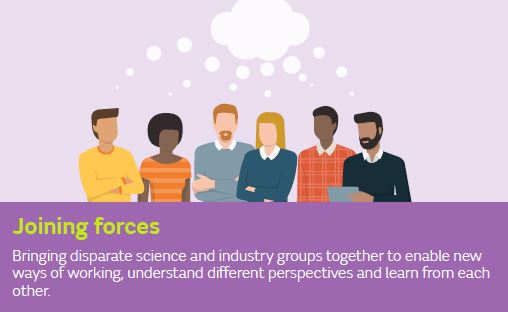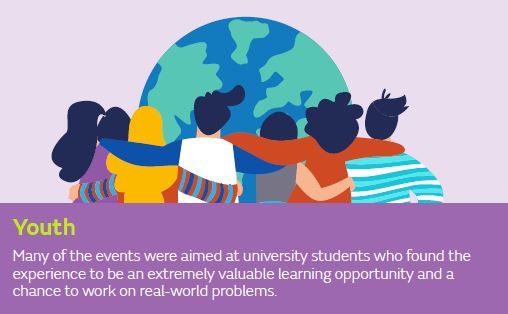Climate Data Challenge hackathon series
This virtual hackathon series tackled a range of challenges related to climate change.
During the spring and summer of 2021, the Met Office and Met Office Acadamic Partnership (MOAP) universities organised a series of virtual hackathon events with the aim of using a variety of skill sets and data products to tackle challenges related to climate change.
What is a hackathon?
A hackathon brings together a range of people with different skillsets e.g. software developers, designers, scientists, artists and communicators who work together to build or create an output. Hackathons are an innovative proving ground for new ideas. They stimulate the creative juices of participants and foster problem-solving and risk-taking in a casual environment. The diversity of participants guarantees a multitude of perspectives and the time limit on hackathons creates a uniquely productive atmosphere that forces participants to distil their visionary concepts down to actionable solutions.
Stimulating innovative thinking
In the lead up to COP26, these events provided an opportunity to stimulate creativity and innovation, seeking new and exciting ways to better build solutions for resilience and the visualisation of climate data.
The hackathon series
You can find out more about the individual hackathons by following the links below.
| Lead organisation(s) | Hackathon topic |
|---|---|
| Met Office | Climate Data Challenge – marine & coastal, nature-based solutions and sustainable development |
| Leeds University | Engaging narratives of future weather in Africa under climate change |
| University College London | Extreme events |
| Bristol University |
Analysis of CMIP6 using tools developed by CMIP5 A paper has also been published on this hackathon - Dann M. Mitchell et al 2022 |
| Exeter University | Sustainable finance |
| Oxford and Reading Universities |
Climate risk in future energy system reliability and uncertainty A paper has also been published on this hackathon - James C. Fallon et al 2022 |
Headline themes
Although this series of hackathons were on different topics/challenges and ran in different ways, there were some common themes around the approach. You can see more on this below and also in a published paper - James Thomas et al 2022

The hackathons used various types of data and provided a safe space for innovative approaches to tackling the challenges set. In some cases, pre-formed teams further developed existing work, in other cases newly formed groups collaborated to explore new ideas. In both cases, the hackathon approach enabled those teams to spend dedicated time using data in new and creative ways to consider how to solve climate change related problems. There were many exciting outputs, but it is also the case that some ideas did not work or move forwards. This, however, is not unexpected or a negative outcome, but a benefit of the safe space approach to allow ideas to be explored without fear of “failure”.

These hackathons also provided an opportunity to bring together scientists and academics with other sectors such as industry. Bringing these disparate groups together enabled new ways of working, providing opportunities to understand different perspectives and learn from each other whilst jointly tackling challenges.

Many of the hackathons were aimed partially or completely at university students including undergraduates, post grads and PhD students. Feedback indicated that they found the experience to be extremely valuable in providing a learning opportunity and a chance to work on real-world problems, in some cases with external organisations.

The hackathons brought together different research communities, specialisms and skill sets. These groups were able to bring their respective areas of expertise to a common problem, maximising the impact of the events with the outputs being greater than the sum of the parts.

Teams typically made use of datasets that are in the public domain, whether this be climate data or data from other fields. During the course of the hackathons, they developed code that was subsequently published on GitHub together with the output presentations etc. This ‘open’ approach to research means that it is straightforward for others interested in the work to pick it up and develop it further should they so wish.
View the full infographic on these themes here.
FInd out about one of the projects from the Met Office Climate Data Challenge in this video.


